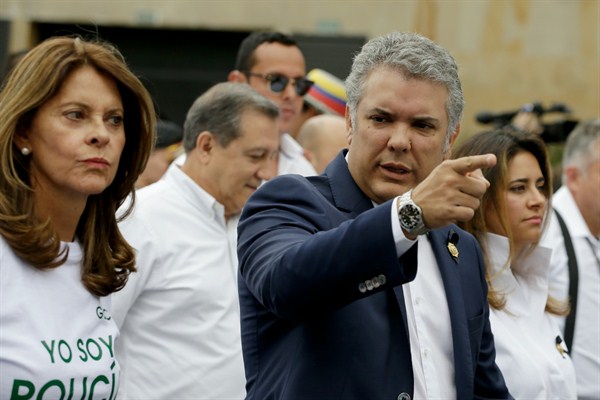In January, after the Colombian guerilla group ELN carried out a car bomb attack against a police academy in Bogota that left 21 cadets dead, the government of President Ivan Duque called on Cuba to extradite ELN leaders—including their top commander—who are in Havana as part of a suspended peace process. Cuba’s refusal to honor the request, which would violate an agreement guaranteeing the ELN negotiators safe return in the event the talks are abandoned, is the latest point of tension between the two governments. In an email interview, Michael Camilleri, director of the Peter D. Bell Rule of Law Program at the Inter-American Dialogue, explains how Cuba’s role in the previous Colombia-FARC peace deal has affected bilateral ties, and the implications of the current tensions.
World Politics Review: How did Cuban-Colombian relations evolve in the decades leading up to the beginning of the Colombian peace process in 2012?
Michael Camilleri: Relations between Colombia and Cuba were turbulent for much of the Cold War period following the 1959 victory of rebel forces led by Fidel Castro in the Cuban revolution. The new Castro government’s support for leftist guerrilla movements in Colombia was a frequent source of the discord. Colombia severed diplomatic relations in 1961 after Cuba was expelled from the Organization of American States. Relations were re-established in 1975, only for Bogota to sever them once more in 1981, again due to Havana’s support for the Colombian M-19 guerilla group. A decade later, Colombian President Cesar Gaviria renewed formal diplomatic ties between the two countries, and relations improved after the end of the Cold War.

